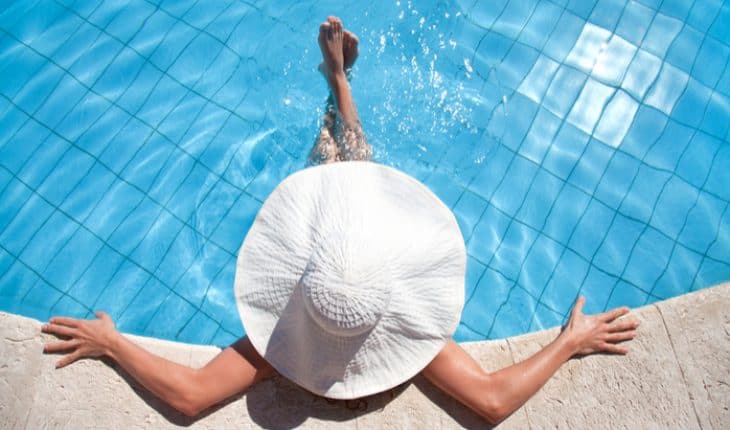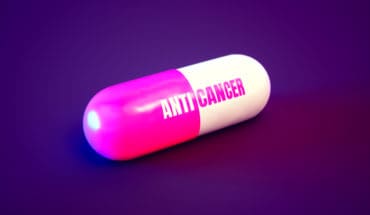Before plunging into your hotel swimming pool, or soaking in hot tubs during your long-awaited summer holiday, you might want to think twice, especially if you have health problems. What lies beneath the sparkling, inviting surface of the water is something we would rather not think about. As well as being good for your health, encouraging you to exercise and de-stress, swimming pools are a major source of gastrointestinal illness, as many bacteria use water to spread to new hosts.
As well as being good for your health, encouraging you to exercise and de-stress, swimming pools are a major source of gastrointestinal illness, as many bacteria use water to spread to new hosts.
New American research, on illnesses linked to hotel swimming pools, carried out in between 2000 and 2014 by the Centres for Disease Control and Prevention (CDC) has revealed that 493 disease outbreaks caused illness in around 27,000 people and more worryingly eight deaths. While some of these illnesses were linked to hot tubs, (65 cases) most of them were related to swimming pools. Most of the outbreaks surged during June, July and August, but illnesses were reported throughout the year during the study period. Many waterborne outbreaks are never identified with fewer than 10 per cent of sick people visiting their doctor.
Here are some harmful organisms, lurking in the water of swimming pools which could ruin your holiday and health if you inadvertently swallow enough:
Legionnaires’ disease
Legionella and Pseudomonas frequently cause outbreaks of illness. Legionella can result in the pneumonia-like illness, known as Legionnaires’ disease, but can also lead to the less severe Pontiac fever. Even if you scrub the slimy the sides of your pool, or Jacuzzi, with disinfectant, Legionella can still survive and multiply on wet surfaces. Thoroughly scrubbing public and private pools with disinfectant helps reduce levels of bacteria and prevent them from multiplying and causing this nasty illness in swimmers. Older people are more likely to become ill from Legionella, especially those suffering chronic lung disease and with health problems. Symptoms of Legionnaires’ disease include a bad cough which doesn’t go away, severe chest pain, difficulty in breathing properly, high temperature and feeling as if you have severe flu. See your GP and tell them where you have been the past 10 days. You may need to go into hospital for treatment with intravenous antibiotics and oxygen if you are diagnosed with Legionnaires’ disease. Although it is very unpleasant, most people recover from Legionnaires’ disease, although it takes a while to get back to normal.
Cryptosporidium (Crypto)
Another common illness causing bug in swimming pools is Crypto, a hardy parasite that is able to survive and thrive, even in pools which have been cleaned well. Unfortunately, Chlorine doesn’t kill Crypto quickly. This bug causes around 58 per cent of the outbreaks of pool-related illness and 89 per cent of illness linked to water playgrounds. Crypto causes diarrhoea and other gastrointestinal problems, certain to ruin a summer holiday. The illness is spread when someone infected by Crypto with watery diarrhoea symptoms, goes swimming. Then, another swimmer who swallows water contaminated with Crypto parasites may develop diarrhoea, stomach cramps, dizziness and vomiting. To avoid infecting other swimmers, if you have these symptoms don’t swim, or let your kids swim if sick with diarrhoea.
Pseudomonas
Another pathogen, Pseudomonas, can result in swimmer’s ear or a skin condition known as “hot tub rash.” According to the CDC, this pathogen caused 47 outbreaks and 920 infections. It sometimes causes flu like symptoms and diarrhoea and is treated with antibiotics
What to look out for
Going for a relaxing swim on your holiday is generally regarded as good for your health, but even thoroughly cleaned pools can harbour some chlorine-resistant bacteria. Water in a swimming pool should look clear and inviting and the tiles should look clean and sparkling. A well looked after pool with adequate levels of chlorine shouldn’t have an unpleasant ammonia-like smell. This not a good sign as a strong smell is caused by the chemical reaction between chlorine and nitrogen from human sweat and urine.
Look out for cloudy, slimy and dirty pools which haven’t been scrubbed properly. Most pools are regularly contaminated with occasional, accidental faecal releases, usually from small children, – but don’t let you put this off. If your children are sick with diarrhoea, don’t let them swim in pools..
Above all keep your head above the water and don’t inadvertently swallow it. Using breaststroke is preferable to crawl, or backstroke, as you will swallow less. Take your children to the bathroom regularly and change baby’s nappies away from the swimming pool to avoid spreading bugs. If you, or your children have had norovirus, or diarrhoea, wait for at least two weeks until you go swimming.
Take your children to the bathroom regularly and change baby’s nappies away from the swimming pool to avoid spreading bugs. If you, or your children have had norovirus, or diarrhoea, wait for at least two weeks until you go swimming.
People over fifty, especially those with chronic lung disease, or current or former smokers should see a doctor immediately if they develop pneumonia symptoms after swimming in a pool, or soaking in a hot tub and mention any possible exposure to Legionella and Pseudomonas, such as swimming in the pool of a hotel, or cruise ship.
You might want to think twice before plunging into a swimming pool on holiday so you don’t take home more than a summer tan and sand between your shoes.
- Dream Worlds a new exhibition in Cambridge - 14th December 2024
- “All Our Stories” a major new exhibition - 26th September 2024
- Dance yourself well - 23rd June 2024






